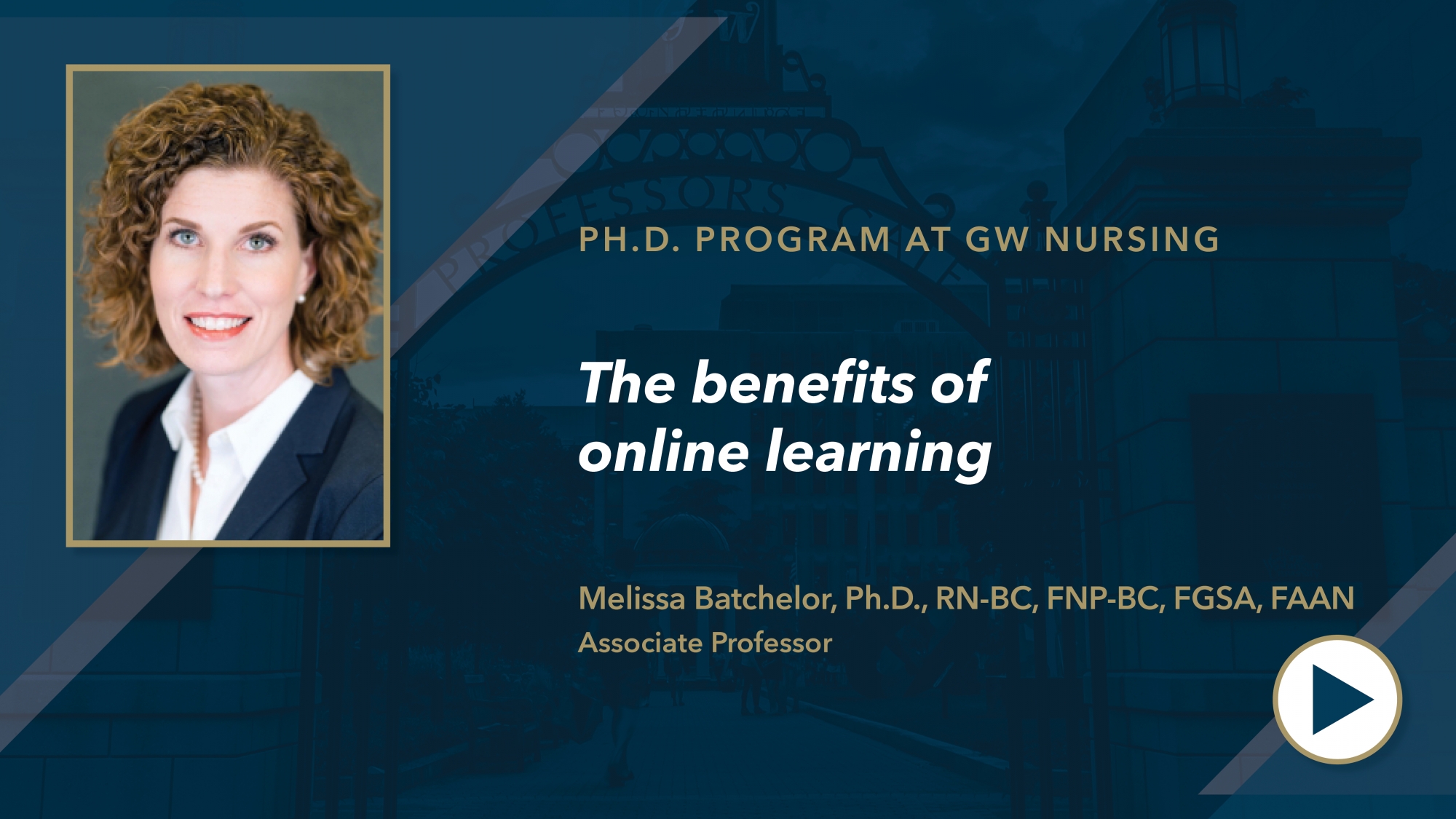OLD: PhD in Nursing
The demand for Ph.D. nurses has never been greater. Less than 1 percent of nurses are Ph.D.-prepared researchers and faculty educated to ask and answer critical questions about human health.
Work closely with our research faculty who conduct clinical, educational, and health services research, underpinned by our commitment to health equity. Take part in a hybrid-format program with carefully developed on-campus, learning-intensive weekends with weekly online experiences.
Highlights
Our Ph.D. graduates will be prepared to:
- Implement theoretical and methodological approaches required to implement discovery science
- Assume tenure-track research or teaching faculty position at a university
- Apply for post-doctoral research fellowships at research-intensive universities or government agencies
- Influence nursing-related policy, education, and scientific discovery
Who Should Apply
This degree prepares nurses for a career in academic nursing and research. Ph.D.-prepared nurses conduct research and teach in university, government and other settings. Faculty and administrative staff are available to meet with you and answer any questions you may have as you work through your application. Please contact our office with questions or information on scholarships: nursingphd![]() gwu [dot] edu (nursingphd[at]gwu[dot]edu).
gwu [dot] edu (nursingphd[at]gwu[dot]edu).
Application Deadlines
Fall 2024
Application Open: 10/03/23
—
Priority: 12/01/23
Release Date: Rolling
—
Final: 02/15/24
Release Date: Rolling
Requirements
Overview
The Doctor of Philosophy in Nursing program consists of 57 credit hours. Program specific questions can be directed to nursingPhD![]() gwu [dot] edu (nursingPhD[at]gwu[dot]edu).
gwu [dot] edu (nursingPhD[at]gwu[dot]edu).
Program of Study
Courses
For full listing of courses and descriptions, please visit the University Bulletin.
On-Campus Requirements
- Orientation on GW campus the summer before year 1
- Friday/Saturday weekend intensive(s) on GW campus per semester in years 1 and 2
Technology Requirements
Each student admitted to the Ph.D. program is expected to own and have ready access to a laptop or tablet with basic productivity software and a webcam. View Policy.
Complete applications that are submitted by the priority deadline will be reviewed first. Applications do not have to be verified by the priority deadline, only completed and submitted. Questions? Contact the Office of Admissions at nursing![]() gwu [dot] edu (nursing[at]gwu[dot]edu)
gwu [dot] edu (nursing[at]gwu[dot]edu)
A completed application includes the following components:
- Current RN License
- Master's degree in nursing or related field
- Resume/CV
- 3 letters of recommendation
- Statement of Purpose (addressing research and potential GW research mentors)
- Writing sample (published article or graded academic paper)
- Score > 100 TOEFL (international applicants)
- Graduate-level inferential statistics course taken within the past five years*
*NURS 6208: Biostatistics for Health Care Research (3) is offered in the spring and summer for those who have not met this requirement
Other Considerations
- 3.0 (on 4.0 scale) preferred GPA
- Interview if selected as a top candidate
At the conclusion of this PhD program, you will be able to:
-
Evaluate, critique, and synthesize knowledge from nursing and other academic disciplines to generate new ideas.
-
Examine diverse modes of inquiry to select the appropriate design to conduct research that builds on nursing science and theory.
-
Integrate team science principles in the conduct of research with interdisciplinary teams.
-
Demonstrate scientific integrity and the protection of human subjects in the design, conduct and analysis of research studies.
-
Apply theory-base approaches and philosophic perspectives from nursing and healthcare research.
-
Disseminate knowledge through publications and presentations.
-
Employ strategic leadership skills to advance the profession, influence policy, and the conduct of research.
- Palliative/end of life care in chronic disease
- Symptom management in cancer
- Maternal health/post-partum outcomes
- Clinical trials performance
- Health care workforce
- HIV and health disparities
- Transgender care
- Educational interventions
- Alzheimer's disease/measurement of cognition
- Autism/neurocognitive development in children
- Geriatric feeding interventions
- HPV prevention/cancer screening and minority health
- Health services research/vaccine policy/drug safety
- Sleep, fatigue and occupational safety
-
Loneliness and Social Isolation and how it impacts human health
-
Social and Structural determinants of health
Graduate-level inferential statistics course taken within the past five years*
*NURS 6208: Biostatistics for Health Care Research (3) is offered in the spring and summer for those who have not met this requirement
Hear from our Faculty & Students
Frequently Asked Questions
- Whom should I ask for references?
-
The Ph.D. program requires three letters of recommendation. We highly encourage at least one recommendation from an academic source, such as a current or former professor. A recommendation from a current or former supervisor who can comment on your professional background is also a good option.
- Do you require the GRE?
-
Ph.D. program applications receive a holistic review, which means all parts of the application are considered to determine likelihood of program success. It was determined that GRE did not accurately predict success and as a result is not required for admission.
- When will funding decisions be made?
-
Students who apply before the priority deadline will receive preferential scholarship consideration and will be notified about funding status 2-4 weeks after acceptance into the Ph.D. program.
- Does GW Nursing accept international students?
-
Students wishing to apply for a student visa in the United States will need to seek sponsorship from George Washington University. At this time, the only program available to students seeking an F-1 or J-1 visa is our Bachelor of Science in Nursing program taught in person in Ashburn, Virginia. For further questions about eligibility, please contact nursing
 gwu [dot] edu (nursing[at]gwu[dot]edu).
gwu [dot] edu (nursing[at]gwu[dot]edu).






